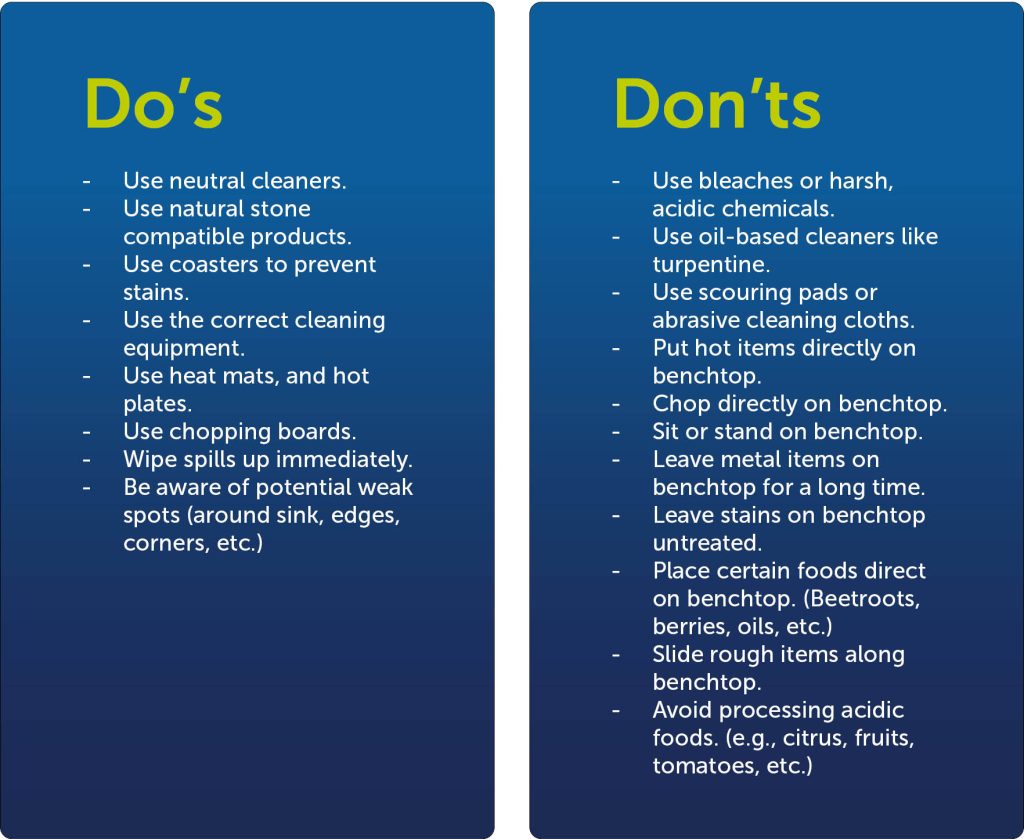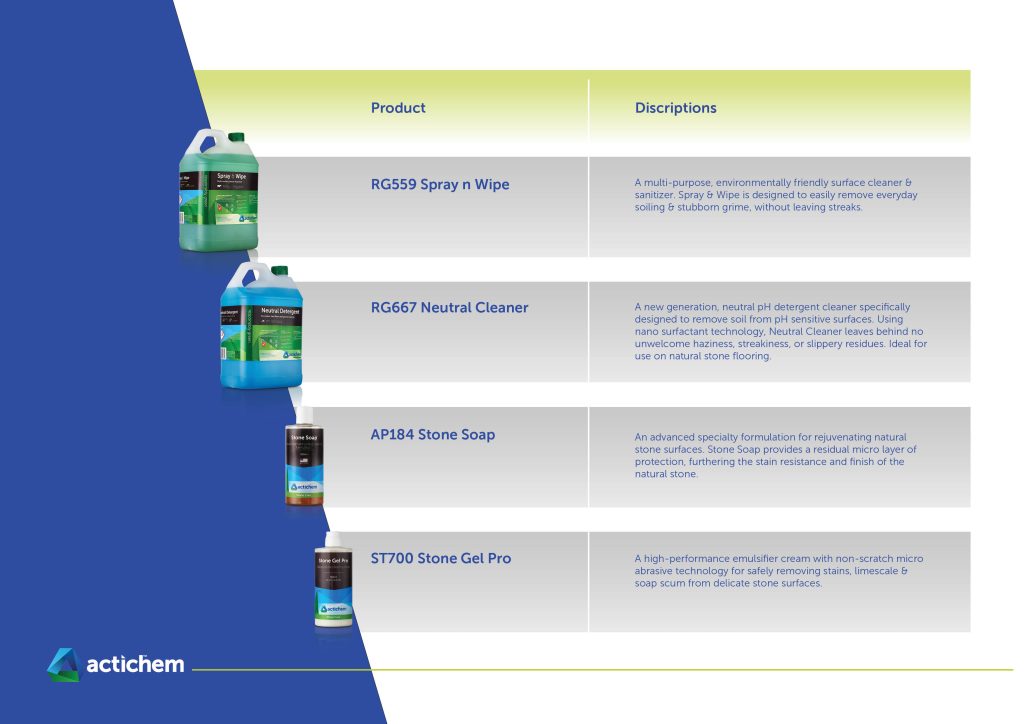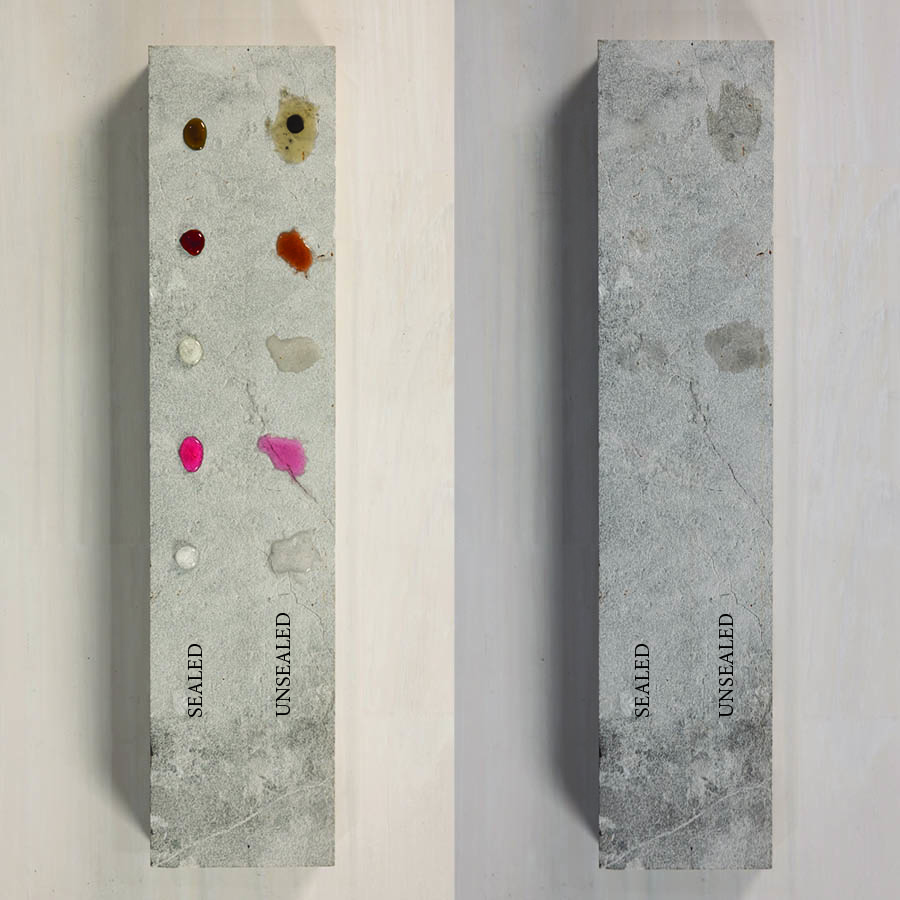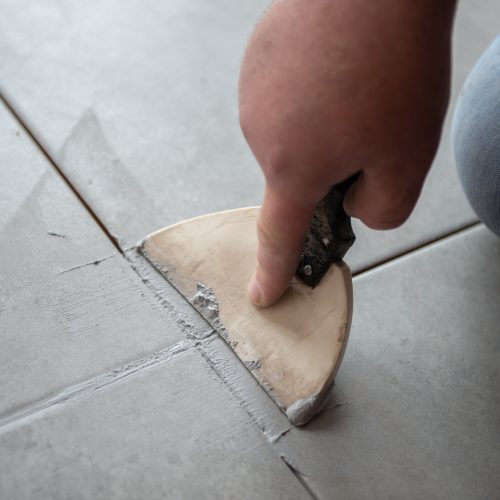Maintaining Natural Stone Benchtops
Natural Stone. A rare piece of art we use in our everyday life.
As it is becoming increasingly popular for benchtops and splash backs, here are several tips to help maintain its functionality and natural beauty.

Daily Maintenance
Natural stone is a delicate substrate that can easily be damaged. Due to its porous nature, it is very susceptible to staining and discoloration from everyday activities. By following the Dos and Don’ts, your natural stone will be preserved and maintain its optimum condition for many years.
Cleaning
When cleaning natural stone, it is best to use a neutral pH cleaner (7 pH), and avoid harsh, acidic cleaners (1-6 pH) as the acid will etch and damage to the surface. Always read the cleaning product’s label to confirm it is suitable for use on natural stone.
A damp, non-abrasive cloth is a good everyday cleaning method. Paired it with a natural stone compatible, neutral spray and wipe, and you have the perfect solution for cleaning away common spills and cooking mess. To further maintain and protect your natural stone, doing a final clean with a product like Stone Soap at the end of each day will strengthen the stain resistance and rejuvenate your natural stone.
A selection of cleaning & maintenance products.

How to Treat Stains
The easiest way to treat stains, is to avoid them. Although most stains can be removed if addressed immediately, some foods stain quicker than others. These foods are normally acidic and include beetroot, turmeric, oils, red wine, pasta sauce, tandoori or curry sauce, berries, and fruit and vegetable juice.
However, if staining does occur, there is no need to worry because in most cases it can be removed. One way of removing stains at home, is the following method using Actichem’s Stone Gel Pro.
- Apply Stone Gel Pro to the stained area.
- Scrub with non-scratch scourer.
- Allow 10 minutes dwell time.
- Scrub again.
- Wipe clean and rinse with clean water.
If the staining persists, it is best to contact a professional to ensure the best results are achieved without damaging the natural stone.
Is Sealing Natural Stone Benchtops Worth it?

Sealing natural stone is a must. Selected for its unique, long-lasting beauty, natural stone is an excellent investment for your home. Although, you may expect years of functionality, natural stone is susceptible to staining, and protection from this is critical.
When it comes to sealing stone there are two main types of sealer:
Topical Sealer & Penetrating Sealer
Topical sealer is similar to painting the stone with a clear coat. It is an impenetrable layer applied on top of the stone, which thus protects it from the surrounding elements. Like paint, you can choose a finish: gloss, sheen, matt etc. However topical sealers have some downfalls:
- They change the appearance and feel of the stone.
- Don’t allow the stone to breath or age naturally.
- Can chip, crack or peel, like paint.
- Can make the surface slippery.
In comparison, a penetrating sealer provides incredible protection without any change to the surface of the stone. The sealer is absorbed into the stone and creates a layer of protection inside the stone’s pores. Penetrating sealers work by repelling water and oil, rather than creating a nonbreathable film like topical sealers. By using repellency, a penetrating sealer not only allows the stone to naturally breath, but it also does not change the look or feel of the stone’s surface.
- It does not change the feel or appearance of the stone.
- Allows the stone to breath and ages naturally.
- Dramatically reduces the risk of staining.
- Strengthens the stone.
- Increase its lifespan.
For more information or technical advice, feel free to contact one of our stone specialists.



